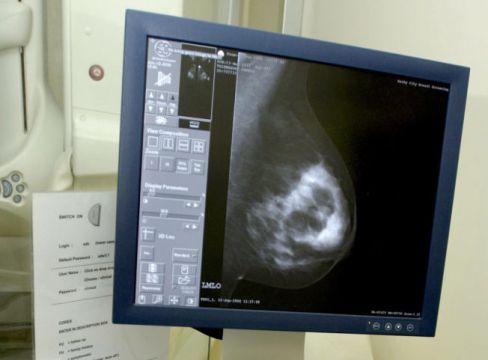A young mother with incurable breast cancer has warned others with a family history of cancer to insist on annual MRI scans as well as other radiology.
The 37-year-old woman, who learned she had Stage 4 breast cancer just six days after the birth of her second baby, issued the warning outside the High Court where she had settled an action against the HSE over her care at University Hospital Limerick and a GP.
She said she was speaking out on the issue after the HSE refused her request for them to highlight the need for MRIs for those who possess the BRCA “cancer gene” to its clinicians and Limerick breast services as part of her settlement.
She said, in her case, if a timely MRI had been done as was required, “though I did not know it at the time, my cancer would have been diagnosed at a time when it was treatable”.
“I have learned that my incurable cancer not just could, but should have been prevented,” she said, as she stood with her 38-year-old husband at her side at the Four Courts.
Instead, the woman, who also lost her own mother to cancer and who has the BRCA2 gene, said “as a result of multiple errors” she and her family “will suffer the incalculable loss that I do not wish to dwell on”.
The woman cannot be identified by order of the court.
She comments came as the UL Hospitals Group, which includes University Hospital Limerick, apologised to her for the failure which resulted in her delayed cancer diagnosis and a GP apologised for a failure to send her for genetic testing to see if she had the cancer gene during two consultations in 2019 and 2020.
The woman said she would rather use this time she has to highlight one vital point for anyone, men or women, with the BRCA1 and BRCA2 gene mutation, which means they are more prone to certain types of cancer, to insist on screening by annual MRI.
Public interest
In court, Mr Justice Paul Coffey was told the case involved a very significant issue of public interest in relation to those who have BRCA gene and the necessity to have annual MRI scans as well as other radiology.
The judge, who noted the settlement after mediation. said the case was a tragedy and it was a heartbreaking situation.
The woman’s counsel, Patrick Treacy SC instructed by Cian O’Carroll solicitors, said the breast cancer was discovered after an issue arose with breastfeeding her newborn. The court heard she was then referred for palliative chemotherapy.
The woman and her husband had sued the HSE and GP, Elaine Kolshus, with an address at Ennis Road Medical, Centric Health, Limerick.
The HSE has admitted a breach of duty in relation to not performing an MRI in a timely manner following the woman’s attendance at University Hospital Limerick in September 2021 after she had been found to have the BRCA gene two months earlier.
In the proceedings it was claimed had her MRI examination of her breasts being carried out in a timely manner following her attendance at the Limerick hospital in September 2021, her tumour would have been detected at a time when it would have been Stage 1 and probably curable.
A mammogram was carried out in February 2022, and it was their case that had it been correctly reported, her breast cancer would have been detected.
In an apology which was read to the court, the UL Hospitals Group said it wished to acknowledge the breach in its duty of care, adding: “This failure resulted in a delayed diagnosis which has had devastating consequences for you, your husband and your two children.”
It added: “For this failure, we offer our sincere and unreserved apologies to you and to your family. We are truly sorry that you will be denied the opportunity to be there to support your husband and children.”
To the woman’s husband and children the hospital group said : “We are truly sorry you will not have the chance for many more years together.”
In a separate apology read to the court, GP Elaine Kolshus apologised for failing to refer the woman for genetic testing “during our consultations in September and October 2019, and from missing a further opportunity to do so in January 2020”.
It was claimed that had the woman been referred for genetic testing in 2019, it is likely that her breast cancer would have been detected on imaging between September and December 2021.







